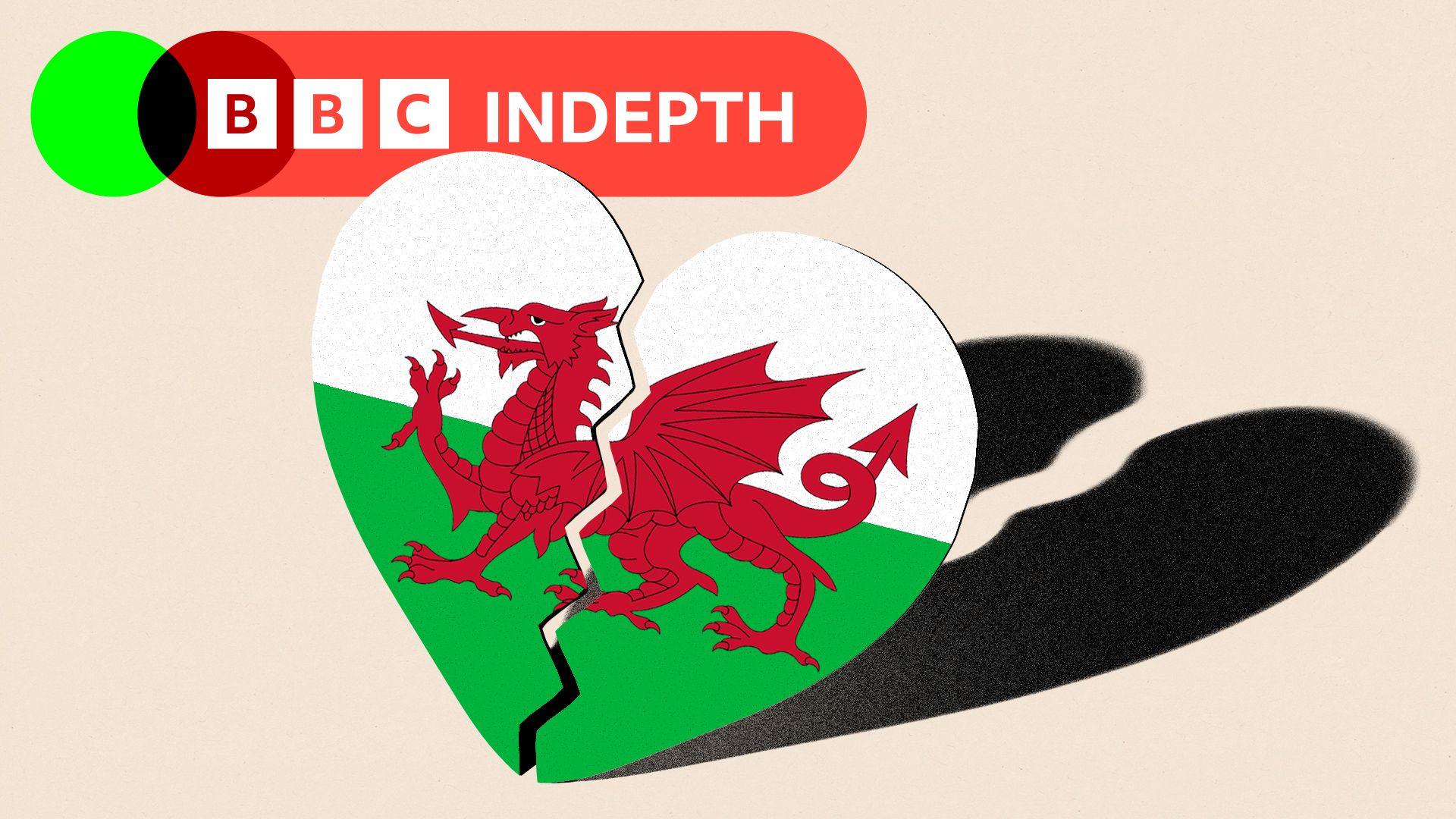Early Covid response in Wales 'inadequate', report finds
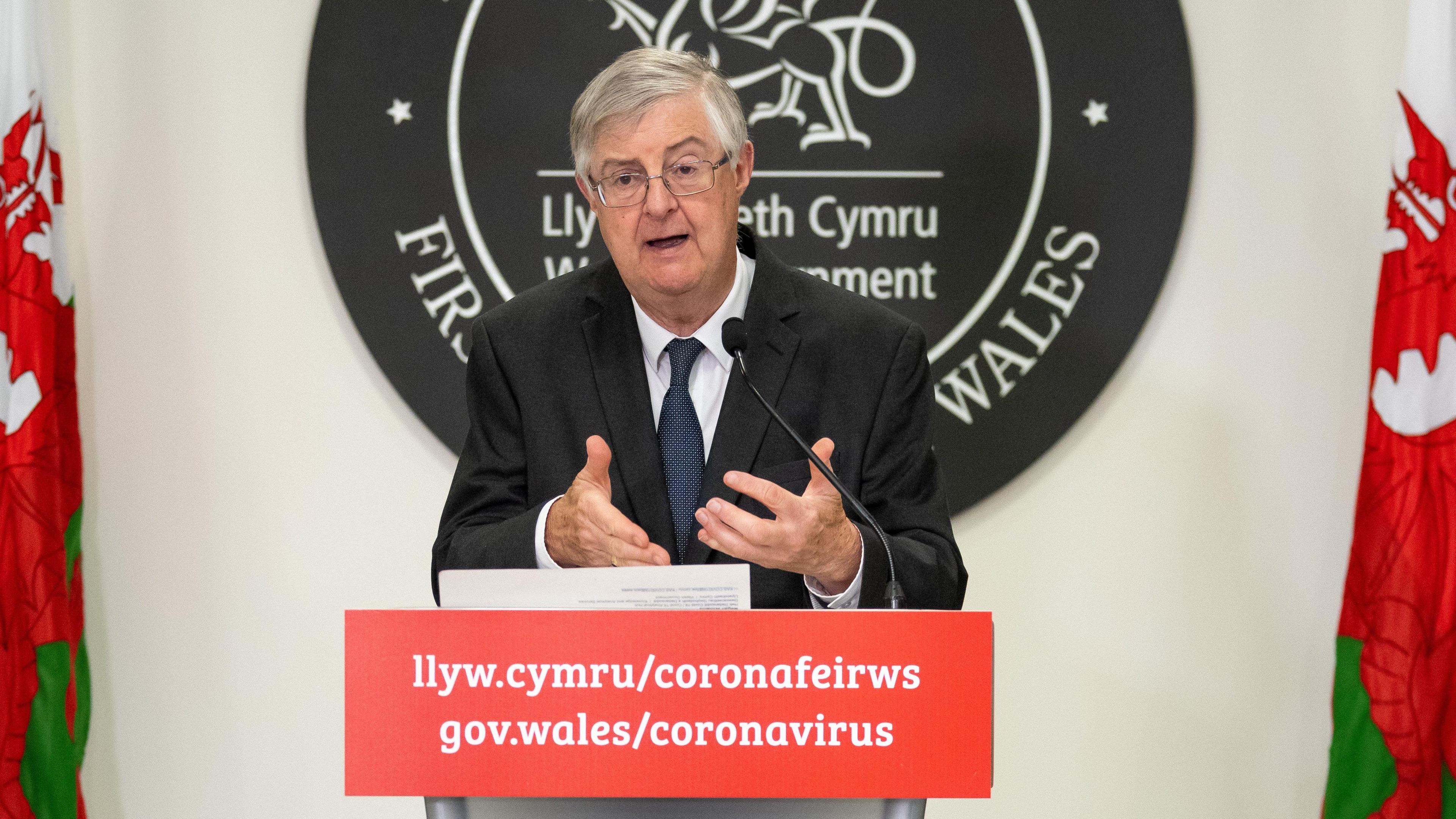
Mark Drakeford led the Welsh government during the pandemic
- Published
The Welsh government's initial response to Covid was "inadequate", with ministers in Cardiff "overly reliant" on the UK government to take the lead, according to the public inquiry into the pandemic.
The inquiry's report considers the response of all four governments across the UK to the pandemic.
Eluned Morgan said the Welsh government "was committed to learning lessons from the pandemic", adding they would "take time to read the report and work with the other UK governments over the coming months to carefully consider and act on its recommendations".
Former first minister Mark Drakeford defended the government's handling of the pandemic, saying it "acted in the best way that we were able".
'I've had a wonderful life' - Covid doctor's goodbye letter to family
- Published9 hours ago
More than 12,000 people died in Wales as a result of Covid between 2020 and August 2024.
The report is based on evidence gathered during the inquiry from key witnesses, including many in Wales, when the inquiry sat in Cardiff last year.
The report said the response of all four governments across the UK was "a repeated case of too little, too late", which meant the first lockdown became "inevitable".
It also said decisions taken by Welsh ministers in the final months of 2020 - during the second Covid wave - were the "likely" reason why Wales had the highest mortality rate of the four UK nations at that time.
"It is likely that this was the result of a combination of failed local restrictions, imposing the [two-week] firebreak too late, and the decision to relax measures more quickly than scientists advised," the report found.
However, the report also states the Welsh cabinet, led by the then-first minister Drakeford, was "effective" at making decisions.
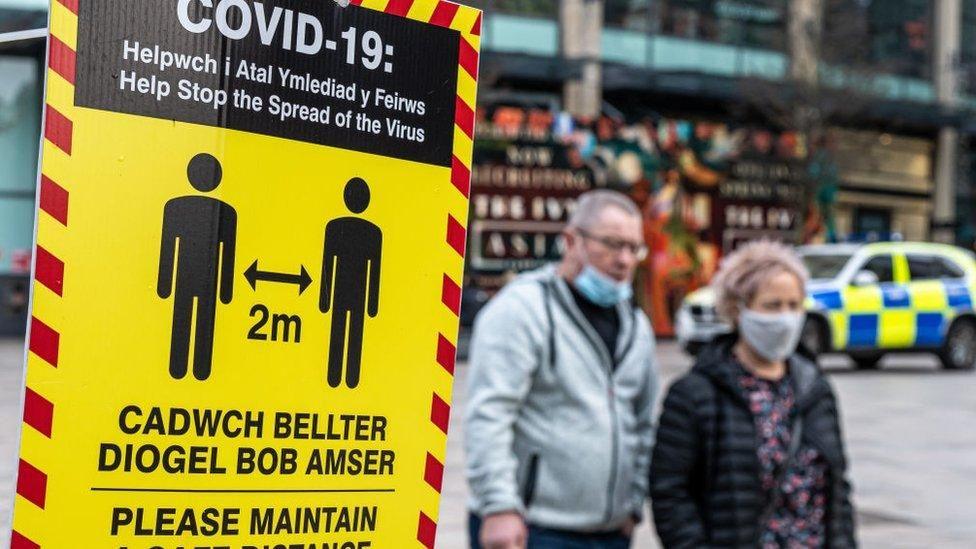
Wales was the last part of the UK to mandate the wearing of face coverings
A key feature of the UK response to Covid was that it was managed under public health legislation rather than the Civil Contingencies Act, as a result of which decisions fell to devolved governments rather than Westminster.
The report said the "lack of urgency" on the part of all four governments in the early part of 2020 was "inexplicable".
It acknowledged that in the early part of 2020, the Welsh government believed decisions regarding the response to Covid would remain in the hands of the UK government.
However, the report states, "this did not mean that the Welsh government should not have recognised the severity of the situation in January and February 2020 and taken its own steps to prepare for the arrival of Covid-19 in Wales".
"Both Drakeford and [the then-health secretary] Vaughan Gething relied significantly upon the UK government and on the UK-wide risk assessments, without adequately considering the specific circumstances in Wales."
The report found there was "an absence of any real strategy pursued by the Welsh government in January and February 2020".
It also noted that after the first Covid case was identified in Wales, Drakeford attended St David's Day celebrations in Brussels, rather than a Welsh cabinet meeting.
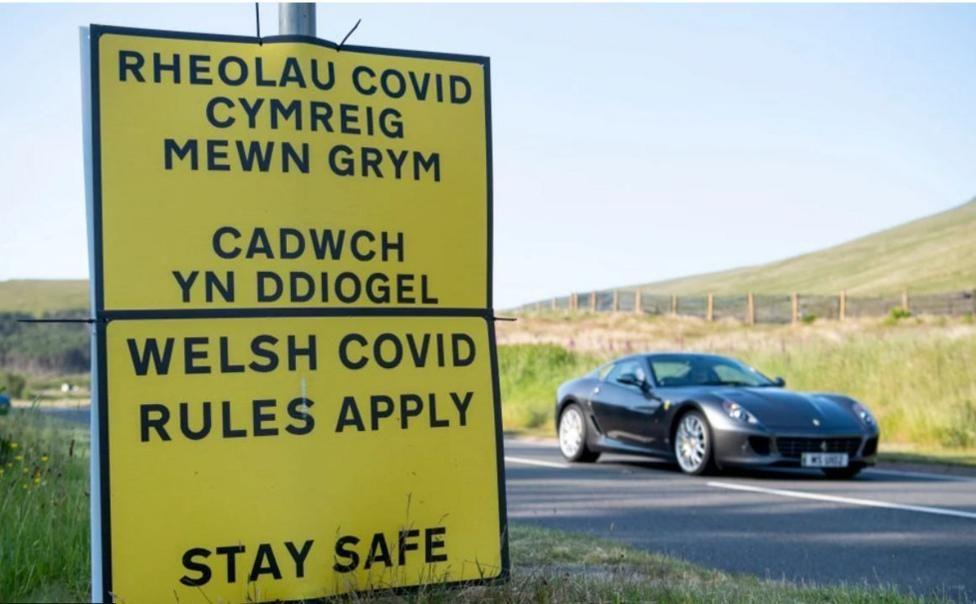
Wales, Scotland and Northern Ireland were more cautious than the UK government when it came to easing restrictions
During the pandemic, the Welsh government took decisions about Covid restrictions that were often at odds with other UK nations.
The report found the divergence of approach between governments caused "confusion" for the public.
It points out that Wales, Scotland and Northern Ireland were more cautious when it came to easing restrictions, however, the approach adopted by the UK government "risked undermining" those decisions.
Wales was the last part of the UK to mandate the wearing of face coverings in shops and supermarkets.
The report said, in future pandemics where airborne transmission is a risk, all governments should "give real consideration" to mandating face coverings in closed settings.
The report found decisions made by the Welsh government during the pandemic were "mostly being made through consensus", describing the cabinet as "an effective and inclusive decision-making structure".
It said Drakeford was recognised by his ministers as a "careful and considered leader [who] maintained positive relationships throughout the response".
The inquiry contrasts this with the "toxic and chaotic culture at the centre of the UK government" led by Boris Johnson.
It also maintained a "lack of trust" between the UK prime minister and the first ministers of the devolved nations "coloured the approach to involving the devolved administrations in UK government decision-making throughout the pandemic".
The report recommends that structures be established "to improve the communication between the four nations during an emergency" to ensure "better alignment of policies" and to provide a clear rationale for differences in approach.
"Political differences should not be a consideration at a time of national emergency," it adds.
'Very challenging'
Drakeford said the report "offers us a different perspective, a perspective that looks back on those events".
"It's able to look right across the United Kingdom, it will tell us things that we weren't able to know at the time," he told BBC Wales.
Asked about Baroness Hallet's comments on the reasons why Wales had the highest mortality rates in the UK in the Autumn of 2020, he said he had to read the report.
"I'm sorry. I'm not absolutely certain about what is being referred to there."
He added that that Autumn had been "very challenging".
A spokesperson for Public Health Wales said it welcomed the report and would consider its recommendations in detail, adding it would "continue to learn from experience of the pandemic".
Anna-Louise Marsh-Rees, who leads Covid-19 Bereaved Families for Justice Cymru, said she was "incredibly disappointed" with the report.
She repeated calls for a Wales-specific inquiry into the pandemic, saying the report failed to fully scrutinise the decisions made by the Welsh government.
Welsh Conservative Shadow Cabinet Secretary for Health and Social Care, James Evans MS, also called for "further investigation" and a "Wales-specific independent inquiry".
"Sadly, significant failures led to Wales having the highest death rate in the UK, despite the Welsh Labour Government enacting stricter lockdowns and depriving Welsh pupils of more school days than elsewhere in the UK," said Evans.
"Lessons must be learned."
Heledd Fychan, Plaid Cymru Senedd Member, said the report was a "stark reminder" of the human cost of the pandemic.
"Bereaved families still don't have the answers they need or deserve. This report - and the wider inquiry - does not and cannot give them that clarity or comfort," she said.
Additional reporting by Maria Cassidy
More top stories
- Published8 hours ago
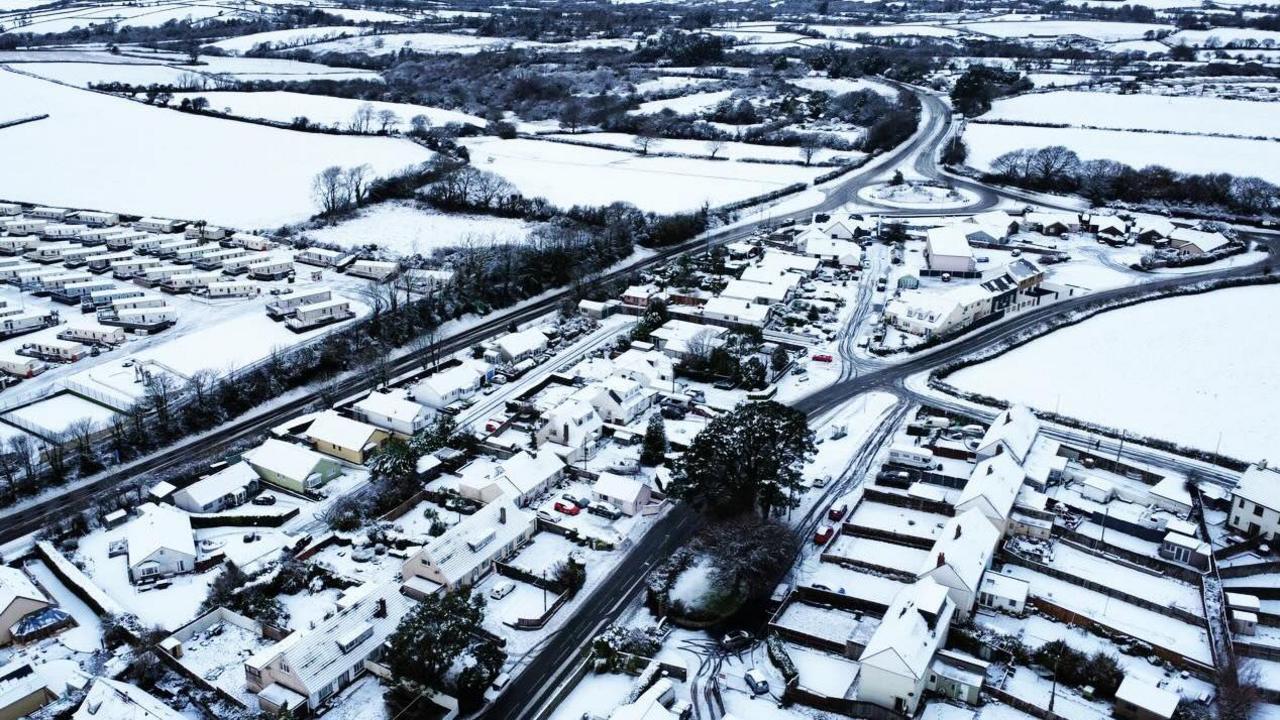
- Published10 hours ago

